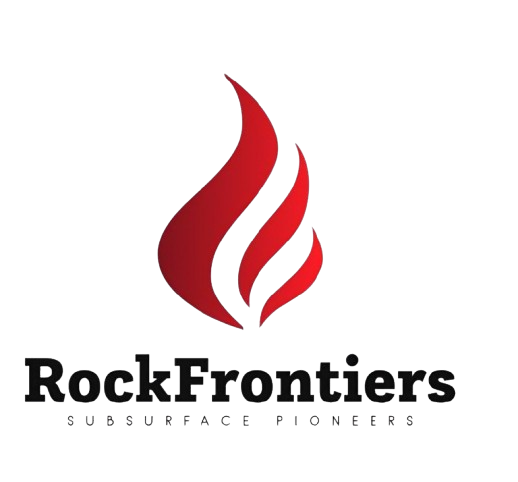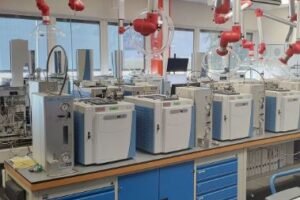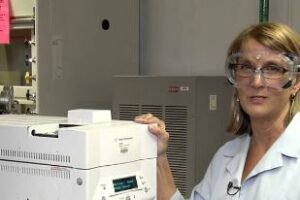🛠️ Wireline and LWD Log Quality Control and its Impact on Interpretation
📘 Course Description: This advanced, hands-on workshop provides participants with the knowledge and practical skills required to evaluate the quality of wireline and LWD logging data and understand how log quality impacts formation evaluation, petrophysical interpretation, and reservoir decisions. It …
Overview
📘 Course Description:
This advanced, hands-on workshop provides participants with the knowledge and practical skills required to evaluate the quality of wireline and LWD logging data and understand how log quality impacts formation evaluation, petrophysical interpretation, and reservoir decisions.
It covers acquisition principles, operational QC flags, depth alignment, environmental corrections, tool limitations, and interpretation pitfalls. Participants will analyze real datasets, identify quality issues, and learn how to mitigate them in interpretation workflows.
🎯 Who Should Attend:
-
Petrophysicists
-
Logging Engineers & Geologists
-
Reservoir Engineers
-
Drilling and Wellsite Geologists
-
Data Analysts & Geoscientists
-
Formation Evaluation Professionals
🧾 Training Format:
-
Duration: 5 Days
-
Delivery: Classroom or Virtual
-
Tools: Interactive lectures, case studies, software demos (Techlog/Geolog), and daily hands-on exercises
-
Materials: Course manual, datasets, and QC checklists
🗓️ Detailed Daily Agenda with Time Breaks
Day 1: Fundamentals of Logging and Acquisition Quality
| Time | Topic |
|---|---|
| 09:00 – 09:30 | Introduction and Course Objectives |
| 09:30 – 10:30 | Logging Principles: Wireline vs LWD Tools |
| 10:30 – 10:45 | ☕ Coffee Break |
| 10:45 – 12:15 | Overview of Log Types & Acquisition Parameters |
| 12:15 – 13:15 | 🍽️ Lunch Break |
| 13:15 – 14:45 | Environmental Corrections and Borehole Effects |
| 14:45 – 15:00 | ☕ Coffee Break |
| 15:00 – 16:30 | LQC Parameters: Caliper, Mud Properties, Hole Conditions |
Day 2: Wireline & LWD Tool Response and QC Indicators
| Time | Topic |
|---|---|
| 09:00 – 10:30 | LWD QC Flags: Memory vs Real-Time Logs |
| 10:30 – 10:45 | ☕ Coffee Break |
| 10:45 – 12:15 | Wireline Repeat Section and Pass Matching |
| 12:15 – 13:15 | 🍽️ Lunch Break |
| 13:15 – 14:45 | Tool Standoff, Stick-slip, and Speed Impact on Logs |
| 14:45 – 15:00 | ☕ Coffee Break |
| 15:00 – 16:30 | Depth Shifting and Time-Depth Corrections |
Day 3: Data QC for Key Logging Measurements
| Time | Topic |
|---|---|
| 09:00 – 10:30 | Gamma Ray and SP: Quality and Depth Matching |
| 10:30 – 10:45 | ☕ Coffee Break |
| 10:45 – 12:15 | Resistivity Logs: Shoulder Bed Effects, Mud Invasion, Borehole Shape |
| 12:15 – 13:15 | 🍽️ Lunch Break |
| 13:15 – 14:45 | Density-Neutron Porosity QC and Borehole Effects |
| 14:45 – 15:00 | ☕ Coffee Break |
| 15:00 – 16:30 | Sonic/Acoustic QC: Cycle Skipping, Stoneley, and Slowness Issues |
Day 4: Impact of Log Quality on Petrophysical Interpretation
| Time | Topic |
|---|---|
| 09:00 – 10:30 | Porosity Estimation under Bad Hole Conditions |
| 10:30 – 10:45 | ☕ Coffee Break |
| 10:45 – 12:15 | Saturation Interpretation: Sensitivity to Resistivity & Quality |
| 12:15 – 13:15 | 🍽️ Lunch Break |
| 13:15 – 14:45 | Permeability & Pay Zone Estimation Errors due to Poor Logs |
| 14:45 – 15:00 | ☕ Coffee Break |
| 15:00 – 16:30 | Case Study: Misinterpretation due to Poor Data |
Day 5: Integrated Evaluation and Final Workshop
| Time | Topic |
|---|---|
| 09:00 – 10:30 | Hands-on Exercise: QC Review of Wireline + LWD Dataset |
| 10:30 – 10:45 | ☕ Coffee Break |
| 10:45 – 12:15 | Building Interpretation Workflows with QC Flags and Confidence Maps |
| 12:15 – 13:15 | 🍽️ Lunch Break |
| 13:15 – 14:45 | Presentations of Team Interpretation Results |
| 14:45 – 15:00 | ☕ Coffee Break |
| 15:00 – 16:30 | Wrap-Up Discussion, Takeaways, Certificate Distribution |
Target audiences
- Reservoir Engineers, Geologists
You May Like
Gas and oil laboratories in the petroleum industryCopy
Course Description This course provides a comprehensive overview of laboratory practices, techniques, and standards used in the petroleum industry. Participants will understand how laboratory results guide exploration, drilling, production, and refining decisions. The course explores lab procedures for PVT analysis, …
Advanced gas chromatography techniques and troubleshooting
📘 Course Description: This advanced-level course is designed for experienced chromatographers and laboratory professionals who wish to master the latest techniques, applications, and in-depth troubleshooting strategies in Gas Chromatography (GC). The program focuses on method enhancement, selectivity tuning, high-resolution separations, …
🧪 Gas Chromatography Analysis – Principles, Practice & Applications
📘 Course Description: This intensive course provides a comprehensive understanding of Gas Chromatography (GC) and its application in chemical, petrochemical, pharmaceutical, and environmental laboratories. Participants will learn the fundamentals of gas chromatographic theory, the hardware components, detector technologies, sample preparation, …
Gas and oil laboratories in the petroleum industry
Course Description This course provides a comprehensive overview of laboratory practices, techniques, and standards used in the petroleum industry. Participants will understand how laboratory results guide exploration, drilling, production, and refining decisions. The course explores lab procedures for PVT analysis, …
Advanced Specialist Petroleum GeoMechanics
📘 Course Description: This elite-level course is tailored for petroleum geomechanics specialists and senior subsurface professionals engaged in complex field development projects. It provides a deep technical dive into stress modeling, anisotropic rock behavior, coupled geomechanical-reservoir simulation, fault/fracture mechanics, and …





